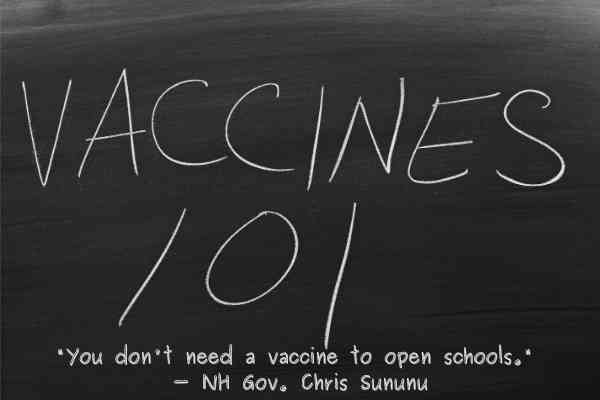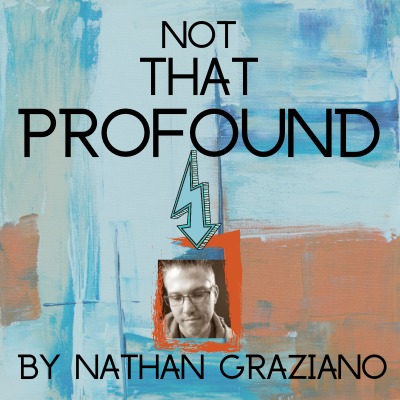O P I N I O N

 On Thursday, Gov. Chris Sununu prioritized the ski patrols at New Hampshire’s commerce-driven mountain resorts—catering to the affluent who can still afford weekends at Waterville Valley in a decimated economy—to receive the COVID-19 vaccine before public school teachers[1].
On Thursday, Gov. Chris Sununu prioritized the ski patrols at New Hampshire’s commerce-driven mountain resorts—catering to the affluent who can still afford weekends at Waterville Valley in a decimated economy—to receive the COVID-19 vaccine before public school teachers[1].
Let’s start with this: I’ve taught high school for nearly two decades in New Hampshire and I have a few things to say in defense of my colleagues throughout the state.
For starters, Gov. Sununu saying that vaccines for teachers are “unnecessary”—stating that the average age of a teacher in New Hampshire is 46 years old and not a high-risk—is a complete kick in the teeth coming from a man who purports to support educators.
While it’s true that the vast majority of fatalities in the state have occurred with people over 80 years old, this seems deliberately shortsighted by the governor, manipulating statistics and ignoring the human element. It seems to be an extension of the specious belief that teachers are not real people and simply the tax-payer’s lackeys.
Strangely, the same people who hate socialism—yet support the socialistic police and fire departments—many of them have raged against remote-learning, wanting their socialist schools back in full-session during a pandemic, largely hinged on issues of childcare, not pedagogical concerns.
But, I suppose, as Whitman noted: “[They] are large/[they] contain multitudes.”
Believe it or not, teachers are real people, and we have families, too. We have parents that we’d like see—and not all of us are New Hampshire-natives and our parents may be over 65 years old and may not have the vaccine—and we miss them. Just like everyone else.
We also may have kids who are stuck at home—like everyone else’s kids—and we’re also struggling with the delicate dance where we can’t find childcare, or we simply don’t know what to do with our restive spawn aching to return to school where they can socialize with their friends and resume some semblance of normalcy.
Teachers are additionally well aware that many people consider us “part-time” workers, due to the fact that we’re only contracted to work from August until June. Almost every one of us has absorbed a drunken uncle telling us during a Thanksgiving dinner that we “have no idea what it’s like to really work.”
Meanwhile, most teachers aren’t simply catching tans during the summer; we’re working on curriculum, taking courses in our fields or trying to collaborate with colleagues to assure that the instruction that we provide for our students is the most current and efficacious we can provide for them.
Or, perhaps, we’re practitioners in the field that we teach, say, writing for newspapers or working on books.
In my two decades in education, my experience has been that most teachers want their students to be thoughtful and inquisitive and successful in their lives following our classes. The teacher/student relationship is something that I deem “necessary” in a functional society, something that deserves protection.
Of course, as with any profession, there will be teachers taking the path of least resistance, the tenured “packet-masters,” who pass out tired and obsolete stapled packets of worksheets on Monday and demand the students complete them by Friday.
Rinse and repeat.
But these teachers are an anomaly, and their indifference and incompetence is a separate issue. There will always be good and bad teachers, like there are good and bad police officers, or kitchen workers, or retail clerks.
The real problem with Gov. Sununu’s remarks cut much deeper for those of us in public education. The real problem is something both old and new.
No one with half a big toe stuck in reality goes into education believing that they’ll be financially prosperous. At one time, teachers had a decent pension, but that portal has been snapped shut in the past two decades in New Hampshire.
In short, we’re not in this for the money, and we just want to feel safe at our jobs. We’re in this because we’re invested in creating a society where its citizens are thoughtful, mindful of science and facts, logical and literate.
To quote the author John Green: “Public education does not exist for the benefit of students or for the benefit of their parents. It exists for the benefit of the social order. We have discovered as species that it is useful to have an educated population.”
In other words, an educated population—who work off facts and science—would vaccinate the teachers first, along with the first responders and healthcare workers and, maybe, put the ski patrol behind the teachers, so we can open our schools safely with minimal risk to everyone.
I can guarantee this: Teachers want to be back in the classroom more than anyone else. Trying to manage amalgams of hybrid and remote instruction, and the attrition of it all, has brought many of us to our knees, considering leaving the profession.
So, yes, Governor Sununu, our vaccines are “necessary,” and if you want New Hampshire’s students to get back in the classroom, you need to have our backs. You need to make us a priority.
Our sleeves are rolled. Our arms are ready. Let’s get back to school.
[1] Oh, trolls, take notice. I’m about to give you enough fodder to fill the comments section for the next five years.







